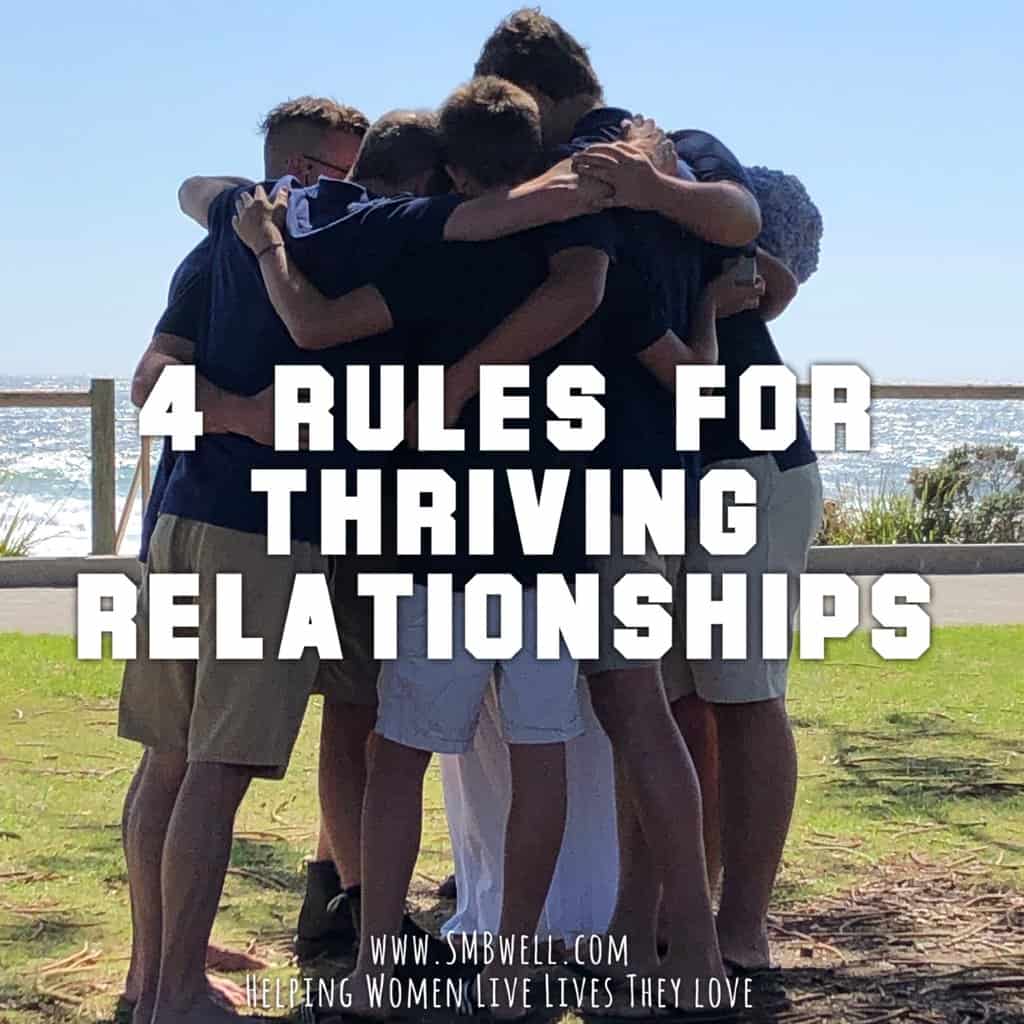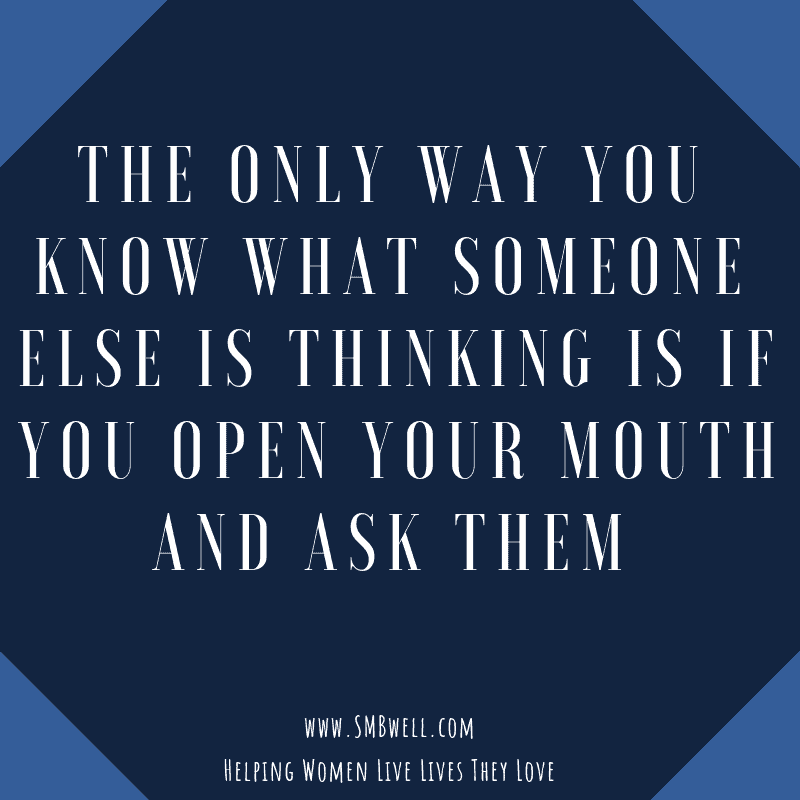Podcast: Play in new window | Download
Subscribe: Apple Podcasts | Spotify | Amazon Music | RSS | More
How many of your relationships would you define as “thriving”? How many would you define as soul-sucking? The relationships in our lives affect every aspect of our being: our health, our wealth, our confidence, our body image, our success at work, even things like our view of humanity and our ability to reach our highest potential!
Humans are social beings. We are wired to connect. This means that, at a cellular level, we need relationships to survive. We are not meant to do this thing called life alone. However, when our relationships are not vibrant and healthy, they suck our life energy out of us.
When contemplating and evaluating the health of your relationships, it’s helpful to think of two broad factors: the who and the how. Who are you in relationship with and how do you interact and relate with this person.
I’ve written about the “who” in other blogs and posts and am happy to send you some of those links if you let me know in the comments below. This post is all about looking at the role you play in relationships: how you show up, what you do that’s helpful, and what you do that’s not helping you. My intent is to point out to you how much control you have in establishing fulfilling and thriving relationships. Here are four ways you can develop the best relationships of your life.
1. Don’t Read People’s Minds:
First of all, did you know you can’t? We actually can’t read people’s minds yet why do we try to every day? I hear so many people saying things like: “If I told him that, he’d be mad” or “He seemed angry so I…”
Trust me, I was there with you. In my first marriage I thought I was a master mind reader. I told myself I knew exactly what he was thinking and feeling. Why does this matter? Because I then would act in a certain way based on my mind reading. Not helpful. First off, humans don’t have the ability to read minds. Second, we waste a bunch of time and energy trying.
Solution? Ask. Communicate. Be in relation with the other person. Shockingly simple but often not easy. Here are some shifts you can take today to get out of “mind reader mode” and into a deeper connection:
- I’m sensing that something is going on for you. Do you want to talk about it?
- When you came home today and did that, I made up this story in my head. What was going on?
- When you said that, I thought….
Bottom line: You are not a mind reader. You don’t have that skill and it’s dangerous to your relationship to pretend you do. Other people don’t think like you. Stop. Breathe. Ask.
2. Don’t Make Assumptions:
This is closely related to the first tip of not reading people’s minds. It goes a step further in encouraging you to not add drama to the facts of your life. Think of the thought model, the framework for emotional adulthood. [tweetshareinline tweet=”There are things that happen in our life and then there’s what we make those things mean. ” username=”SusieBarolo”]The healthiest and most thriving relationships stick to the facts and question the assumptions our brains wants to make.
Here are some examples of assumptions I hear around me (and that I have made!)
- He’s late to pick me up. He must be…
- She didn’t call me back. She must be angry that….
- He never returned my email. He must think…..
- He didn’t offer me dessert because he thinks ….
- She cancelled our coffee because….
In all of the above situations, the first part of the sentence is fact. He didn’t offer you dessert. She cancelled your coffee. He was late to pick you up. The second parts are all the drama we add to our lives.
In actuality, there are multiple reasons as to why things happen but our brain tends to choose the most negative. I don’t need to get into the neuroscience behind our brain’s negativity bias here. For now, be aware of the assumptions you make. Be aware that it’s in our best interest to not finish the sentences in our heads and communicate openly with the other person instead. Why? Because of #1: we can’t read other people’s minds.
The only way we know what someone else is thinking or feeling is if we open our mouths and ask what they’re thinking. Find the courage to ask questions in your relationships and you will avoid drama. “When in doubt, shout it out” is a mantra I use in my coaching and personal life.
How does this work in real life? Take the above example of your friend not returning you call: Instead of making assumptions, be courageous and ask her why she didn’t return your call. What’s the worst that can happen? She’s angry you asked? Well, you already think she is angry so no loss there. Don’t make assumptions about other people, what they’re doing, or what they’re thinking. Communicate as truthfully as you can.
3. Don’t Take Things Personally:
Nothing others do or say is because of you. If someone is critical of you or judging you for something you’ve done, it’s not about you, it’s about them. Think about it by reversing the roles and considering where you are judgmental in your life. If I’m in a restaurant, I could care less if someone doesn’t put their napkin on their lap before eating. Yet, sit me next to a family who spends the whole meal on their phones and boy do I become critical. Why? I don’t care about the napkin because I’m comfortable with my own table manners. However, the family’s phone behavior triggers me because I am sensitive about the amount I use my phone and its’ distraction in my life.
When we can see what we’re judging and how we are judging it because it’s something we’re working on or something, we can see how others’ judgement of us is a projection of their own feelings, their own experiences, and has little to do with us.
How can this bring you freedom in your relationships? In all ways. When someone doesn’t return your call, instead of making it about you, you can ask yourself: “What are other reasons why they may not have returned my call.” If your spouse snaps at you, you can be aware that s/he is having an emotional experience but you don’t have to take it on as your problem. If someone cuts you off in traffic, you can ask yourself: What are 3 reasons this person might have cut me off?
The more of us who are emotional adults, the calmer and less reactive this society will be. Ask yourself today: How could I take this less personally? Or “What are some other explanations for what happened?”
4. Tell the Truth:
Finally, tell the truth. Most of us don’t walk around thinking we’re dishonest, however, how many of us tell little white lies all day long. For example, we might tell our friend we like her skirt even though we think it’s hideous. Or, when you are too exhausted to go to book club, do we say that our husband is running late + our son needs help with his history project?
Yoohoo..stop! Sure, our intentions are good – we are usually telling people what we think they want to hear. Why? Because we’re afraid of what others would think or are afraid of how they would react. Or maybe we think telling someone the truth would be hurtful. All of these reasons are made from a good place but are flawed when we bring our knowledge of how emotions work (our thoughts create our emotions). So, can we control how someone else feels? No! Never. They control their thoughts and feelings and we control ours. When we say things that aren’t our truth, we end up hurting others. We don’t have deep relationships because we’re being a fake version of ourself. We also hurt ourselves. By not being our true, authentic selves and telling our truths in kind and gracious ways, we send a message to ourselves that there’s something about us that we need to hide. Not quite a confidence builder, ey?
Where do you tell white lies? When your spouse asks if you’re okay and you’re not what do you say? Where do you not speak up for yourself? Where do you tell 1/2 truths? Practice shifting that today. Start small. Speak up when someone asks where you want to go to dinner. Speak up when you’ve had a cruddy day. Speak up dear warrior.
You are here because of your uniqueness. The universe doesn’t make duplicates. Share your self, not some mixed up version you think other people want to see. I want to see YOU! The more you use these four rules in your relationships, the more deep contentment and connection you will feel. Connection is one of the pillars of wellness. Without it, you will feel a level of discontent that builds over time. That dulls your energy and your light. You matter to me. Let’s go warrior. Let’s live lives we LOVE!
Get More Here
Did you like this post? Then you’ll love my free Weekly Warrior Wellness Newsletter. Every week I will send you a message full of fun and freebies. My mission is to help women live lives they love. I stand by your side by offering tons of free content to support you on this journey. You’ve got this.






